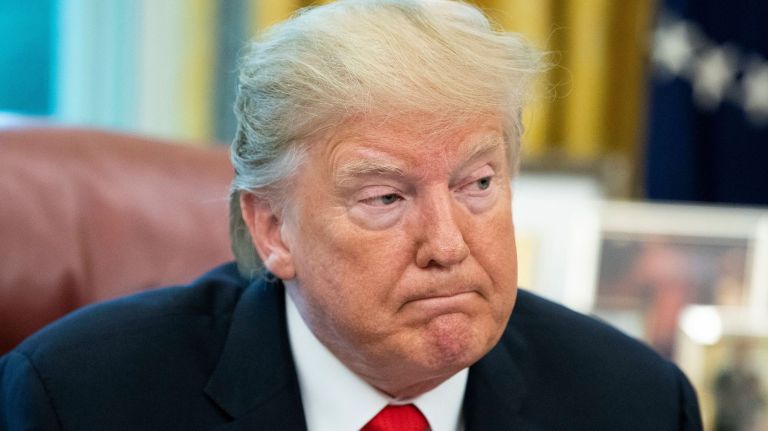Impeachment is a constitutional procedure and the prerogative of the House of Representatives. It’s a fundamental exercise of our system’s checks and balances. There is no option for the subject of it to defy it.
That’s been the case for 230 years, since the Constitution came into force, and still is true. President Donald Trump is no exception. He must comply with the impeachment inquiry underway in the House.
The probe centers on a July phone call between Trump and Ukrainian President Volodymyr Zelensky in which Trump asked Zelensky to investigate former Vice President Joe Biden, a potential 2020 election rival, and his son Hunter. There is no question that Trump asked for what he called a “favor,” immediately after Zelensky talked about buying anti-tank missiles from the United States. Trump seemed to condition the military aid on Zelensky pursuing an investigation. The conversation came to light thanks to an intelligence officer’s whistleblower report, and was confirmed when the White House released a rough transcript of the call and by information from witnesses and documents the House already has.
Now, by refusing to cooperate further with the impeachment inquiry, Trump seems to be trying to stall it and to cover up any further details about what happened. The more he does so, the more he risks yet another article of impeachment centered on obstruction, precisely what happened to Richard Nixon during the Watergate probe.
The White House said in a bizarrely argued letter to Democratic House leaders that it won’t comply with the impeachment inquiry, in part because it is a political process. Yes, it is. It was set up that way by the founders. In lieu of criminal proceedings, they tasked elected representatives of the people with sitting in judgment of a president’s alleged misconduct. That inherently is a political process. The problem with the current inquiry is that it’s beginning as a nakedly partisan process.
From what is already known, it’s obvious that Trump was wrong to solicit a foreign government to investigate a political rival and thereby help influence an American election, his own reelection. But was that impeachable? That’s what the inquiry must determine.
One thing that’s clear is that Speaker Nancy Pelosi should call a full House vote on holding the inquiry. It’s not necessary. There is no provision for it in the Constitution. But that was the procedure used in the impeachment investigations of Nixon and Bill Clinton. While it’s rich for a president with no respect for precedent to complain that refusing to hold a vote breaks with prior precedent, calling a vote would disarm that argument, as well as the rush-to-judgment argument being made by some Republicans.
Also clear: Trump and his supporters must stop denigrating and trying to uncover the identity of the whistleblower. The law is crystal clear. Whistleblowers must be protected. And they are not spies.
Impeachment is a consequential undertaking. There are critical questions to be answered. Both defenders and critics of the president should want them answered in a sober, thoughtful, fact-based proceeding. Congress and the White House must follow the facts and the process where they lead. The American people deserve nothing less.





































